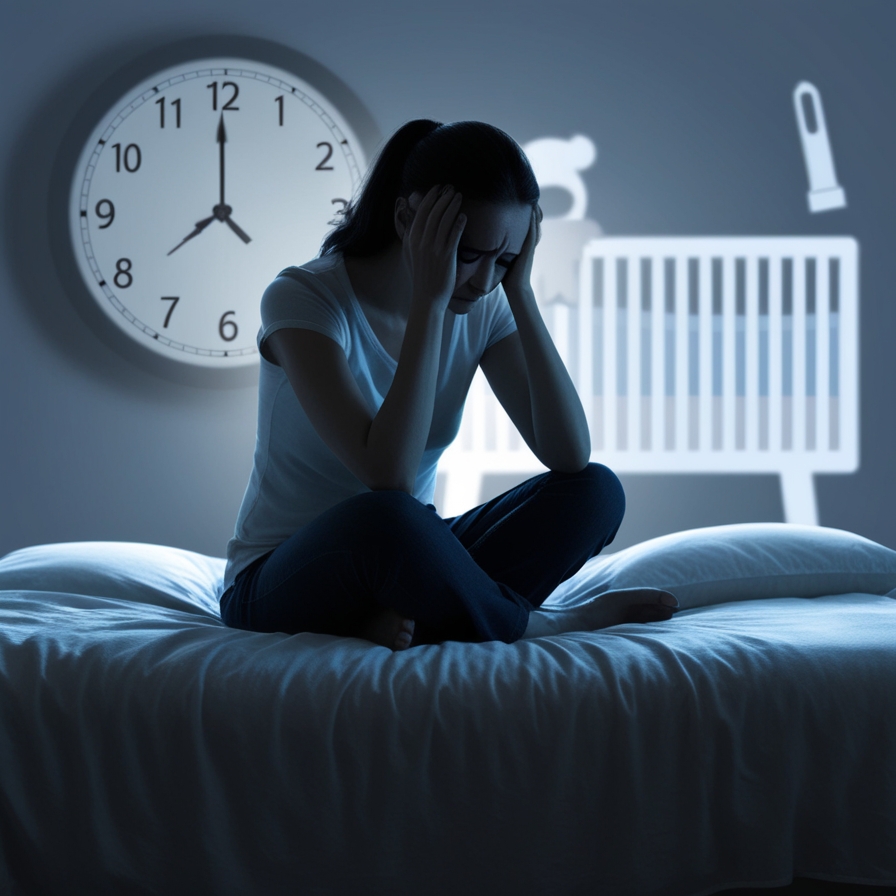Sleep is more than just a time for rest it’s a critical factor in maintaining overall health and well being, among its many roles, sleep also plays a vital part in reproductive health, whether you’re trying to conceive or planning for the future, understanding how sleep deprivation impacts fertility is crucial.
How Lack of Sleep Affects Fertility in Women
-
Hormonal Imbalances
Sleep regulates reproductive hormones like estrogen, progesterone, and luteinizing hormone (LH) all of which are essential for ovulation, poor sleep can disrupt the delicate balance of these hormones, causing irregular menstrual cycles and reducing the chances of conception. -
Stress and Fertility
Sleep deprivation increases cortisol, the stress hormone, elevated cortisol levels can suppress reproductive hormones and delay ovulation, making it harder to conceive. -
Reduced Egg Quality
Melatonin, a hormone produced during sleep, protects eggs from oxidative damage, lack of sleep reduces melatonin production, potentially lowering egg quality and fertility. -
Impact on Fertility Treatments
Studies suggest that women with poor sleep patterns may have lower success rates in assisted reproductive technologies (ART) like IVF due to hormonal disruptions and stress.
How Lack of Sleep Affects Fertility in Men
-
Low Testosterone Levels
Testosterone, vital for sperm production, is primarily released during sleep, insufficient sleep can lead to a drop in testosterone levels, which negatively impacts sperm count and quality. -
Poor Sperm Health
Sleep deprivation is linked to reduced sperm motility (movement) and abnormal morphology (shape), both of which are key factors in successful conception. -
Oxidative Stress on Sperm
Chronic sleep deprivation increases oxidative stress, which can damage sperm DNA and reduce fertility potential. -
Erectile Dysfunction
Sleep deprivation can contribute to hormonal imbalances and circulatory problems that may lead to erectile dysfunction, further complicating fertility efforts.
Broader Effects of Sleep Deprivation on Fertility
-
Weight Gain
Poor sleep can lead to weight gain by altering hunger and satiety hormones, obesity is a known factor that negatively impacts fertility in both men and women. -
Weakened Immune System
A lack of sleep weakens the immune system, potentially increasing the risk of infections that could affect reproductive health. -
Circadian Rhythm Disruption
Sleep deprivation disrupts the body’s circadian rhythm, affecting fertility related hormonal cycles in both men and women.
How to Improve Sleep for Better Fertility
-
Stick to a Sleep Schedule
Maintain a consistent sleep routine by going to bed and waking up at the same time daily, even on weekends. -
Create a Restful Sleep Environment
Keep your bedroom cool, dark, and quiet. limit screen time and bright lights before bed. -
Limit Caffeine and Alcohol
Avoid caffeine in the afternoon and evening, and limit alcohol consumption, as both can interfere with sleep quality. -
Practice Stress Management
Techniques like yoga, meditation, and deep breathing can help reduce stress and promote better sleep. -
Seek Professional Help
If sleep problems persist, consult a healthcare provider or sleep specialist, addressing underlying sleep disorders like insomnia or sleep apnea is especially important if you’re trying to conceive.
Finally
Sleep is a cornerstone of reproductive health, and neglecting it can have far-reaching consequences on fertility, by prioritizing good sleep hygiene, you can support your body’s hormonal balance, improve reproductive health, and increase your chances of conception.
Remember, improving sleep is a simple yet powerful way to enhance not only your fertility but also your overall well-being, take small steps today to ensure restful nights and a healthier tomorrow.

